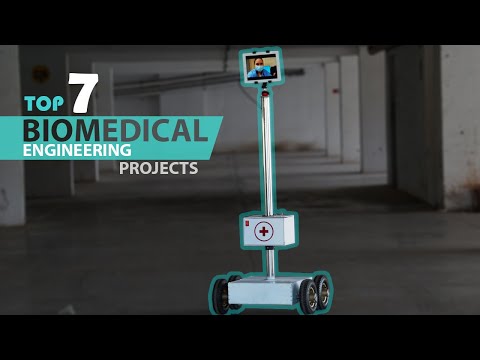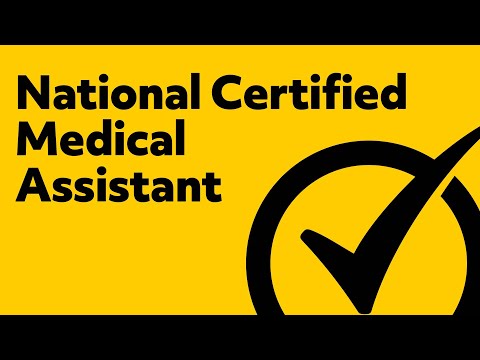5 Great Careers for Medical Assistants
Contents
- Introduction: 5 Great Careers for Medical Assistants
- What Does a Medical Assistant Do?
- The Benefits of Being a Medical Assistant
- The Best Careers for Medical Assistants
- How to Become a Medical Assistant
- The Future of Medical Assisting
- FAQs About Medical Assisting
- 10 Great Reasons to Become a Medical Assistant
- The Bottom Line: 5 Great Careers for Medical Assistants
- Additional Resources for Medical Assistants
5 Great Careers for Medical Assistants: Discover 5 career paths that medical assistants can take to find the right job for them.
Checkout this video:
Introduction: 5 Great Careers for Medical Assistants
If you’re considering a career in medical assisting, you may be wondering what your options are. Here are five great careers for medical assistants:
1. Clinical medical assistant: A clinical medical assistant works directly with patients, performing tasks such as taking vital signs and histories, administering injections, and performing basic laboratory tests.
2. Office medical assistant: An office medical assistant works in a physician’s office, performing tasks such as scheduling appointments, handling billing and insurance paperwork, and answering patient questions.
3. Specialty medical assistant: A specialty medical assistant works in a specific area of medicine, such as cardiology or oncology. Tasks will vary depending on the specialty, but may include preparing patients for procedures, providing post-procedure care, and assisting with the administration of treatments.
4. Medical administrative assistant: A medical administrative assistant performs tasks such as responding to patient inquiries, scheduling appointments, and preparing correspondence. They may also be responsible for maintaining medical records and filing insurance claims.
5. medical transcriptionist A medical transcriptionist listens to recordings of dictation from physicians and other healthcare providers and transcribes them into written reports.
What Does a Medical Assistant Do?
Medical assistants are the jack-of-all-trades in the medical field. As such, they wear many hats and perform a variety of essential duties. In general, medical assistants are responsible for handling both administrative and clinical tasks in hospitals, clinics, and other health care facilities.
Some of the administrative duties medical assistants may be responsible for include answering phones, scheduling appointments, handling patient billing and insurance, and maintaining medical records. They may also be responsible for handling correspondence, ordering supplies, and arranging for hospital admissions and laboratory services.
When it comes to clinical duties, medical assistants generally focus on patient care. They may take medical histories and record vital signs, prepare patients for examinations, assist physicians during examinations, give patients injections or enemas as directed by physicians, collect and prepare laboratory specimens for analysis, perform basic laboratory tests on premises, schedule follow-up visits as needed, prepare and maintain examination and treatment rooms, instruct patients about medications and special diets… the list goes on! Basically, if it needs to be done in a hospital or clinic setting (and doesn’t require a licensed professional), chances are good that a medical assistant will be the one doing it.
Medical assistants typically have an associate degree or postsecondary certificate from an accredited program. Some states have certification requirements for medical assistants; however, certification is not required everywhere.
The demand for medical assistants is expected to grow much faster than average in the coming years; in fact, the Bureau of Labor Statistics projects that employment of medical assistants will grow by 23 percent from 2016 to 2026—much faster than the average for all occupations. If you’re considering a career in healthcare but don’t want to invest the time or money necessary to become a licensed professional such as a registered nurse or physician assistant, becoming amedical assistant may be the perfect solution!
The Benefits of Being a Medical Assistant
Medical assistants play a vital role in the healthcare industry, providing support to physicians and other medical professionals. If you’re thinking about a career in healthcare, becoming a medical assistant may be the perfect option for you. Here are five great reasons to consider a career in medical assisting:
1. Medical assistants are in high demand. According to the Bureau of Labor Statistics, employment of medical assistants is projected to grow 23 percent from 2016 to 2026 — much faster than the average for all occupations. This growth is due to the increasing number of elderly Americans who will need medical care and the growing number of physicians and other healthcare providers who will need support staff.
2. Medical assistants can earn a good salary. The median annual wage for medical assistants was $32,480 in 2016, according to the Bureau of Labor Statistics. And, since many medical assistants have flexible hours, you may be able to earn even more by working overtime or taking on additional responsibilities.
3. Medical assisting is a rewarding career. As a medical assistant, you’ll have the satisfaction of knowing that you’re helping people every day. You’ll also have the opportunity to build relationships with patients and their families, and you may even find yourself providing emotional support during difficult times.
4. Medical assistants have opportunities for advancement. As you gain experience as a medical assistant, you may find yourself taking on more responsibility or moving into management positions. Some medical assistants even go on to become licensed practical nurses or registered nurses.
5. Medical assisting is a great way to get into healthcare. If you’re interested in a career in healthcare but don’t have the time or money to go back to school for a four-year degree, becoming a medical assistant may be the perfect solution. With on-the-job training and certification programs available, you can start working as a medical assistant right away
The Best Careers for Medical Assistants
Medical assistants are essential members of the healthcare team. They perform clinical and administrative tasks in doctors’ offices, hospitals, and other medical facilities.
If you’re interested in a career in healthcare, but don’t want to go to medical school, becoming a medical assistant may be the perfect option for you. Medical assistants can enter the workforce relatively quickly and easily, and there is a great demand for their skills.
Here are five great careers for medical assistants:
1. Clinical medical assistant: Clinical medical assistants work directly with patients. They take vital signs, collect patient histories, prepare patients for examinations, and assist with diagnostic tests.
2. Administrative medical assistant: Administrative medical assistants handle the business side of healthcare. They schedule appointments, maintain medical records, bill insurance companies, and perform other office duties.
3. Specialty medical assistant: Specialty medical assistants have specialized training in a particular area of medicine, such as pediatrics or cardiology. They may perform additional duties related to their area of expertise.
4. Rehabilitation medical assistant: Rehabilitation medical assistants work with patients who have physical or mental disabilities. They help them regain function and independence through rehabilitation therapies and exercises.
5. Research medical assistant: Research medical assistants work in laboratories or research facilities. They assist scientists with experiments, data collection, and analysis
How to Become a Medical Assistant
A medical assistant is a professional who works in a healthcare setting and provides support to both patients and doctors. If you’re interested in becoming a medical assistant, there are a few things you need to know.
First and foremost, you will need to complete an accredited training program. Once you have completed your training, you will need to take and pass the Certified Medical Assistant (CMA) exam administered by the American Association of Medical Assistants (AAMA). Upon passing this exam, you will be well on your way to becoming a medical assistant.
Medical assistants typically work in doctor’s offices, hospitals, or other healthcare facilities. In this role, they perform a variety of tasks such as taking patient medical histories, scheduling appointments, and assisting with routine office procedures. Additionally, medical assistants may also be responsible for basic laboratory tasks such as taking blood samples and performing urine tests.
If you’re interested in pursuing a career in healthcare but don’t want to become a doctor or nurse, then working as a medical assistant may be the perfect solution for you. With the right training and certification, you can begin your career in this growing field in no time.
The Future of Medical Assisting
Medical assistants are in demand now more than ever. With the aging baby boomer population and the Affordable Care Act (ACA) increasing access to health care, the Bureau of Labor Statistics (BLS) projects that employment of medical assistants will grow by 29% from 2016 to 2026 — much faster than the average for all occupations.1
If you’re considering a career in medical assisting, you may be wondering about your job prospects and what the future of medical assisting looks like. Here are five great career options for medical assistants:
1. Clinical medical assistant
2. Specialist medical assistant
3. Administrative medical assistant
4. Teaching medical assistant
5. Research medical assistant
FAQs About Medical Assisting
-What is a medical assistant?
-What do medical assistants do?
-Where do medical assistants work?
-How much do medical assistants make?
-How can I become a medical assistant?
10 Great Reasons to Become a Medical Assistant
Medical assistants are in high demand and the job outlook is excellent. If you’re thinking of pursuing a career in healthcare, here are 10 great reasons to become a medical assistant:
1. You’ll make a difference in people’s lives.
2. It’s a stable and secure career.
3. You can get started without a four-year degree.
4. Medical assistants are in high demand.
5. The job outlook is excellent.
6. Medical assistants can work in a variety of settings.
7. The salary is good, and the opportunity for advancement is excellent.
8. Medical assistants have flexible schedules.
9. You can pursue additional education and training to advance your career.
10. You’ll be part of a healthcare team that makes a difference every day!
The Bottom Line: 5 Great Careers for Medical Assistants
Medical assistants are critical members of any healthcare team, providing essential support to doctors and other medical professionals. They perform a wide range of tasks, from administrative duties to clinical tasks, and they play an important role in keeping healthcare operations running smoothly.
With the aging of the Baby Boomer generation and the ever-increasing demand for healthcare services, medical assistants are in high demand. The Bureau of Labor Statistics projects that employment of medical assistants will grow 19 percent from 2016 to 2026, much faster than the average for all occupations.
If you’re considering a career as a medical assistant, you may be wondering what your job prospects will be. Here are five great career options for medical assistants:
1. Hospital medical assistant: Hospital medical assistants work in hospitals and provide support to doctors, nurses and other hospital staff. They may also assist with patient care, perform administrative tasks and handle basic clinical duties.
2. Clinic medical assistant: Clinic medical assistants work in outpatient clinics and provide support to doctors and other clinic staff. They may also assist with patient care, perform administrative tasks and handle basic clinical duties.
3. Nursing Home Medical assistant: Nursing Home Medical assistants work in nursing homes and provide support to doctors, nurses and other nursing home staff. They may also assist with patient care, perform administrative tasks and handle basic clinical duties.
4. Private practice medical assistant: Private practice medical assistants work in private practices and provide support to doctors, nurses and other private practice staff. They may also assist with patient care, perform administrative tasks or handle basic clinical duties.
5. Corporate medical assistant: Corporate medical assistants work for businesses or corporations that have on-site health clinics or wellness programs. They provide support to employees who use these facilities and may also assist with patient care, perform administrative tasks or handle basic clinical duties
Additional Resources for Medical Assistants
The job outlook for medical assistants is very positive. They are in high demand due to the aging population and the Affordable Care Act. As a result, there are many opportunities for medical assistants to advance their careers.
There are a few different routes that medical assistants can take to further their careers. Some choose to specialize in a certain area, such as surgery or pediatrics. Others may choose to become certified medical assistants, which requires passing an exam.
Some medical assistants may also choose to go back to school to earn a degree in healthcare administration or another related field. This can lead to a career as a healthcare administrator or manager.
Here are five great career options for medical assistants:
1. Certified Medical Assistant: Certified medical assistants have completed an accredited training program and passed a national certification exam. They have the knowledge and skills needed to perform all of the duties of a medical assistant, including taking vital signs, administering injections, and scheduling appointments.
2. Healthcare Administrator: Healthcare administrators oversee the day-to-day operations of healthcare facilities, such as hospitals and clinics. They ensure that all staff members are properly trained and that patients receive high-quality care.
3. Human Resources Manager: Human resources managers plan and coordinate all of the human resources activities for an organization. This includes recruiting and hiring employees, managing payroll and benefits, and resolving employee disputes.
4. Medical Biller: Medical billers prepare and submit insurance claims for reimbursement from patients’ health insurance providers. They also follow up on outstanding claims and work with patients to set up payment plans.
5. Practice Manager: Practice managers are responsible for the overall operation of a medical practice, including managing staff, finances, and patient care services. They ensure that the practice runs smoothly and efficiently so that patients receive high-quality care.







